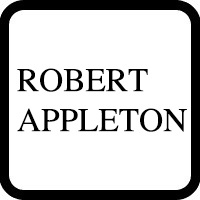Armonk RICO Act Lawyer, New York
Sponsored Law Firm
-
 x
x

Click For More Info:
-
The Law Offices of Richard L. Cooper, P.A.
848 Brickell Avenue Suite 800 Miami, FL 33131» view mapDWI/DUI, Drug Trafficking, Felony Nationally Ranked Top 40 Under 40
With Richard L. Cooper you can expect a trusted confidant who will work diligently to fully understand your case and determine a road map to help you regain control of your life.
800-756-2781
Robert Michael Appleton
✓ VERIFIEDInternational, Criminal, Government, White Collar Crime, RICO Act
Robert M. Appleton is a world renowned and internationally recognized cross border litigation attorney focused on assisting global, foreign and US co... (more)
Richard H. Rosenberg
White Collar Crime, RICO Act, Criminal, Criminal, Car Accident
Status: In Good Standing
Charles Stanley Warren
Litigation, Clean Air Practice, Environmental Law, RICO Act
Status: In Good Standing Licensed: 60 Years
Jeffrey B. Gracer
Real Estate, Litigation, RICO Act, Business
Status: In Good Standing Licensed: 38 Years
Stephen Richard Markman
Lawsuit & Dispute, Visa, RICO Act, Consumer Protection
Status: In Good Standing Licensed: 28 Years
Eylan Schulman
Federal Trial Practice, RICO Act, Civil Rights, Prisoners' Rights
Status: In Good Standing Licensed: 20 Years
Heather Aley Richardson
Litigation, International, Clean Air Practice, RICO Act
Status: In Good Standing Licensed: 24 Years

 Richard L. Cooper Miami, FL
Richard L. Cooper Miami, FL AboutMiami Attorney at Law
AboutMiami Attorney at Law ServicesCriminal Defense
ServicesCriminal Defense

